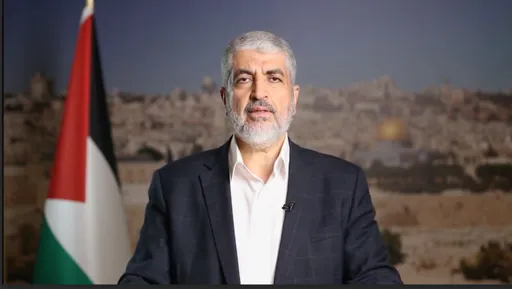Britain will not recognise the Taliban as the new government in Kabul, but must deal with new realities in Afghanistan and does not want to see its social and economic fabric broken, Foreign Secretary Dominic Raab has said.
Speaking on Friday during a visit to Pakistan, Raab said it would not have been possible to evacuate about 15,000 people from Kabul without cooperation with the Taliban, who seized the capital on August 15.
"The approach we're taking is that we don't recognise the Taliban as a government," he said, adding that Britain normally recognised states rather than governments.
"We do see the importance of being able to engage and having a direct line of communication."
Raab's comments reflect the balance countries such as Britain and the United States are seeking to strike in the aftermath of the Taliban's lightning victory and the collapse of the Western-backed government in Kabul.
In his remarks, Pakistani FM Shah Mahmood Qureshi said things are evolving in Afghanistan "and both countries hope it evolves into the right direction, direction of peace and stability.
"We are in this partnership for peace," he said.
READ MORE: Taliban set to name co-founder Mullah Baradar as Afghan govt head – report
Humanitarian crisis
Western countries fear that a looming humanitarian crisis in Afghanistan and an economic collapse could create hundreds of thousands of refugees.
But they are wary of Taliban's promises that Afghanistan will not go back to the harsh rule exercised during their last period in power before 2001.
"The Taliban has made a series of undertakings – some of them are positive at the level of words. We need to test them and see if this translates into deeds," Raab added.
"It is important at this stage to set or to judge the Taliban by these early, initial and probably, quite modest, tests and see whether they deliver."
He said Britain had released the first tranche of a 30 million pound ($41.5 million) package of humanitarian assistance for Afghanistan's neighbours, which may have to bear the brunt of any large exodus.
Raab added that the aid budget for Afghanistan had been increased to 286 million pounds but future payments would go through aid groups.
READ MORE:Taliban on brink of forming new government in Afghanistan
EU aims for Kabul presence to coordinate engagement
EU countries agreed to reestablish a joint presence in Kabul if security allows to deal with the Taliban on ensuring safe passage departures, the bloc's top diplomat said on Friday.
"We have decided to work in a coordinated manner to coordinate our contacts with the Talibans, including through a joint European Union presence in Kabul... if the security conditions are met," foreign policy chief Josep Borrell said on Friday after a meeting of EU foreign ministers.
EU will engage with the Taliban, subject to strict conditions, but that does not mean the bloc is recognising a new Afghan government, Borrell said.
The EU would also seek to coordinate engagement with partners in the region in areas such as migration flows and organised crime.
READ MORE: Taliban set to reveal new govt as bid to reopen Kabul airport intensifies























